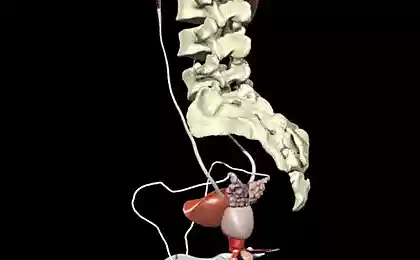251
Why We Fear Change and How to Learn to Accept It

Introduction: The Nature of Fear of Change
Change is an integral part of life. However, despite their inevitability, many of us have a deep fear of them. Why is this happening? Fear of change is the natural reaction of the human psyche to the unknown. Our brains are programmed to survive, and anything that goes beyond what we know is perceived as a potential threat.
But what if we said that fear of change is not an enemy but an ally? What if you learned to embrace it and use it as a tool for personal growth? In this article, we explore the nature of fear of change, its causes, and offer practical tips to help you adapt to and benefit from new circumstances.
Why are we afraid of change?
1. The unknown
The human brain loves predictability. When we encounter something new, our minds begin to draw the worst-case scenarios. This is an evolutionary mechanism that helped our ancestors survive in dangerous conditions. In today’s world, however, this mechanism often works against us, causing anxiety and stress.
2. Loss of control
Change is often accompanied by a sense of loss of control. We get used to a certain order of things, and when that order is broken, we feel vulnerable. This is especially true in situations related to work, relationships or health.
3. Fear of failure
Many of us are afraid that we will not cope with new challenges. This fear may be related to low self-esteem or negative experiences in the past. We fear that change will lead to failure, which will stop us from succeeding.

How do you learn to accept change?
1. Be aware of your emotions
The first step to accepting change is to become aware of your emotions. Recognize that you are afraid and try to understand why. Ask yourself: “What exactly scares me?”, “What are the worst scenarios I imagine?” This will help you separate real risks from fake fears.
2. Develop flexibility of thinking
Flexibility of thinking is the ability to adapt to new conditions and find non-standard solutions. Think of change as an opportunity for growth, not a threat. For example, if you lose your job, think about how it can be a boost to a new career or a business.
3. Create an action plan
When you have a plan, the fear of the unknown decreases. Break big changes into small steps and act gradually. For example, if you’re planning to move to another city, start by exploring the area, finding a home, and meeting new people.
4. Seek support.
Don't be afraid to ask for help. Discuss your fears with loved ones or consult a psychologist. Sometimes just talking about your feelings can help reduce anxiety.

Practical exercises to adapt to change
- Meditation and Mindfulness: Mindfulness practices help reduce stress levels and learn to live in the present moment.
- Keeping a diary: Write down your thoughts and emotions about change. This will help you better understand yourself and your fears.
- The "What if" technique: Imagine the worst-case scenario and think about how you will act in this situation. This will help you feel more prepared.
Conclusion: Change as a Path to Growth
Fear of change is a natural part of human nature. However, if you learn to embrace it and use it as a motivation to grow, change can be a powerful tool for self-development. Remember that every new challenge is an opportunity to become stronger, wiser and more confident.
Start small: Be aware of your fears, develop an action plan, and don’t be afraid to ask for support. Over time, you will find that change is not a threat, but an opportunity to create the life you have always dreamed of.
How to Say No Without Feeling Guilty
Mysteries of the cosmos: 5 phenomena that science still can not explain























